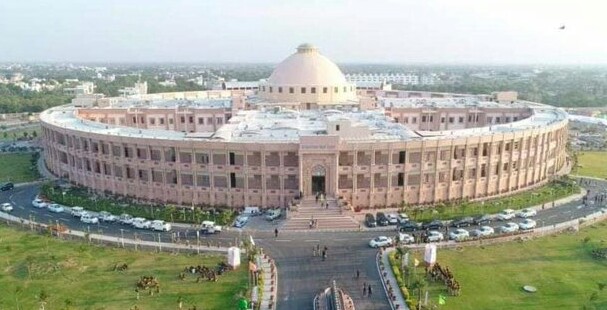In a strongly worded order, the Rajasthan High Court on Thursday initiated a suo motu proceeding to address the State government’s glaring failure to implement necessary measures in anticipation of the extreme heatwave conditions forecast for the summer.
Justice Anoop Kumar Dhand observed that despite the pressing public health concerns posed by the escalating heatwave, the State had neither prepared an effective action plan nor taken any concrete steps to mitigate the impending crisis.
“No sincere efforts have been made by the State to implement the ‘Heat Action Plan’ devised under the Rajasthan Climate Change Project. Similarly, the scheme titled ‘Strengthening Health Systems Preparedness for Heat-Related Illness (HRI) in India’ remains unimplemented. No advisory has yet been issued to the State Health Department regarding the upcoming heatwave—a measure essential for safeguarding public welfare,” the Court noted.
Justice Dhand further expressed disappointment that no meaningful steps had been taken even after similar directions were issued in a previous suo motu matter last year.
“This case serves as a textbook example of the obstinate apathy displayed by State officials, who seem to perceive themselves as being above the law,” he remarked.
The Court went on to highlight multiple critical lapses:
- Absence of mechanisms for sprinkling water on roads in areas with high pedestrian movement;
- Lack of shaded shelters or cooling zones at traffic signals, busy roadsides, and densely populated areas;
- Major traffic signals remain exposed, leaving pedestrians and commuters vulnerable to direct sun;
- No arrangements made for distribution of ORS, aam panna, or other cooling relief measures for daily-wage workers, rickshaw pullers, and porters;
- No drinking water facilities for birds and animals;
- No advisory issued for outdoor laborers recommending rest periods during peak heat hours (12 Noon to 3 PM);
- Failure to disseminate heatwave alerts through SMS, FM radio, television, mobile apps, print, or social media platforms.
The Court emphasized the urgency of the situation, asserting that it cannot remain indifferent while people are exposed to life-threatening heat conditions.
“Citizens of the State cannot be treated as cattle. Every human being—and indeed every living being, including animals and birds—has a fundamental right to life,” Justice Dhand stated.
Accordingly, the Court directed the Chief Secretary to immediately form a coordination committee comprising relevant departments to formulate and implement a comprehensive heatwave action plan. The Court also expressed concern over the State’s misplaced priorities in fund allocation.
“The government cannot plead lack of funds while continuing to spend lavishly on publicity campaigns and award functions. Public funds must be channelled towards genuine public welfare initiatives. Transparency and participatory governance are imperative to ensure that taxpayer money is used for essential public services,” the order stated.
The matter has been listed for further hearing on April 24, to be taken up alongside the earlier suo motu case. In the meantime, the State authorities have been directed to show cause as to why the following measures should not be implemented:
(a) Plantation of trees along all major roads across every district and creation of green public spaces;
(b) Immediate implementation of the “Heat Action Plan” and full enforcement of the HRI preparedness scheme, along with issuance of health advisories;
(c) Enactment and enforcement of the “Prevention of Deaths Due to Heat and Cold Waves Bill, 2015”;
(d) Formulation of a recurring summer policy to be activated annually once temperatures exceed 40°C;
(e) Grant of suitable compensation to families of individuals who succumb to heatstroke-related fatalities.



